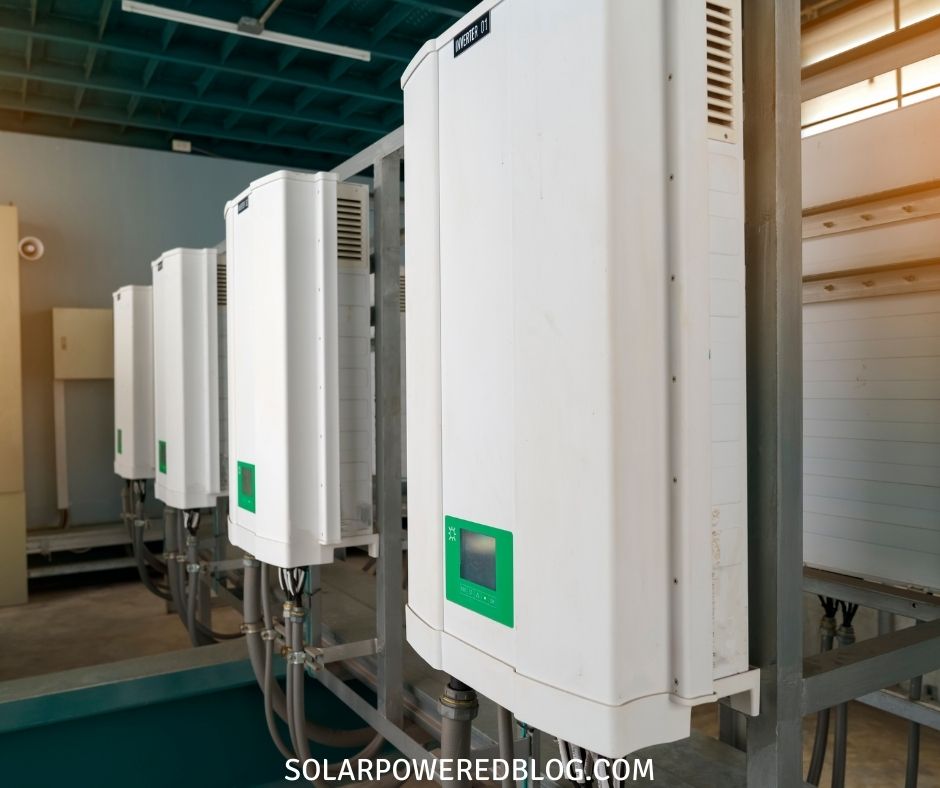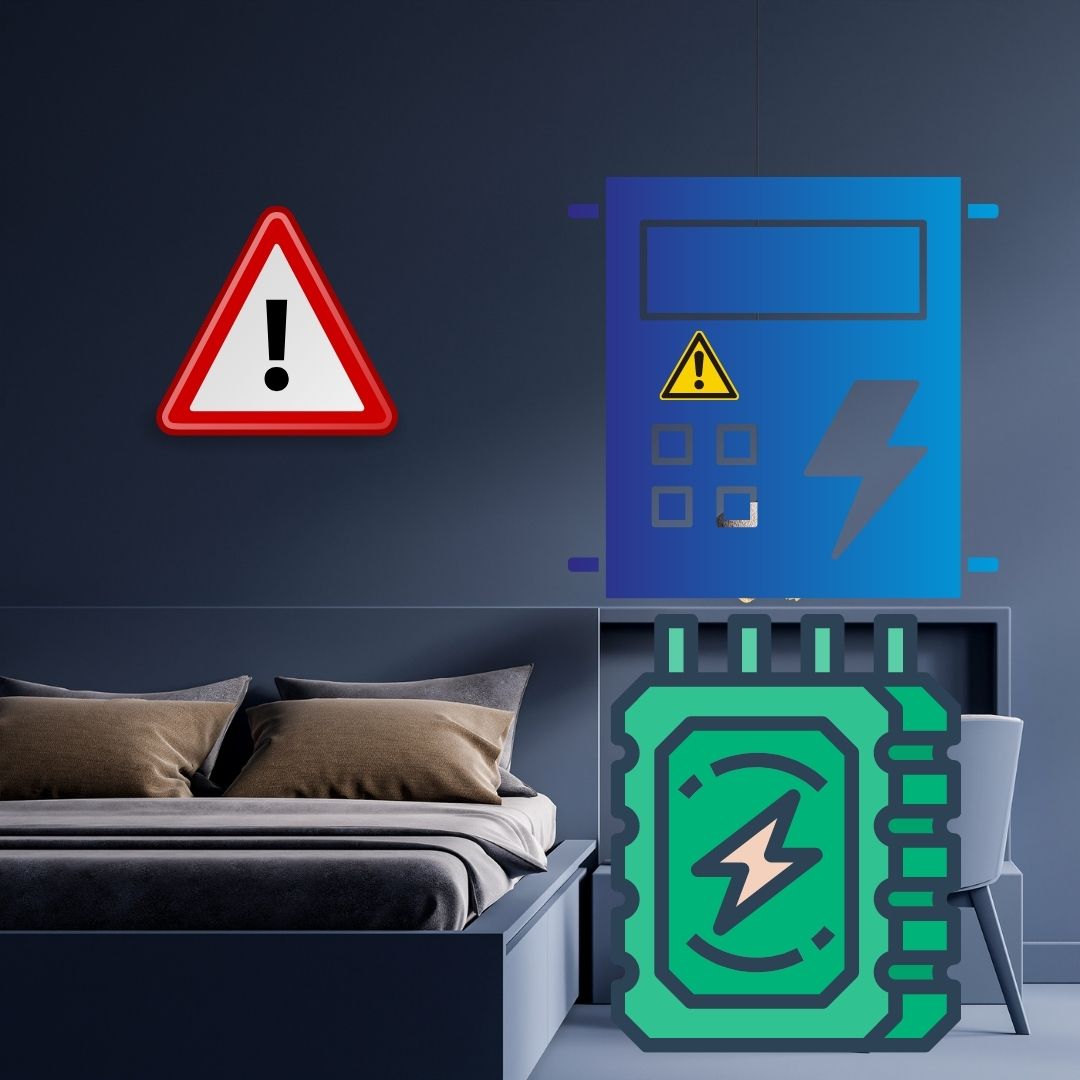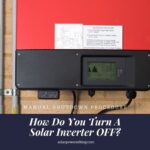It’s no secret that technology has taken over our lives. We rely on it for just about everything, from entertainment to communication to work. And while there are some benefits to this constant connection, there are also some risks, especially when it comes to our health.
One such risk is the potential for radiation exposure. In particular, there is some concern about the safety of keeping an inverter and battery in the bedroom for your off-grid system. After all, these devices emit electromagnetic fields (EMFs), which some believe can be harmful to our health.
So, is it Safe to Place an Inverter and Battery in the Bedroom?
Most of the research on the health effects of EMFs has been focused on high-frequency EMFs, such as those emitted by power lines and cell phones. However, there is some evidence that low-frequency EMFs, such as those emitted by inverters and batteries, can also be harmful. The best place to keep these devices is in an electrical room. Inverters and batteries are known to emit extremely low-frequency electromagnetic fields (ELF-EMFs).
ELF-EMFs are a type of non-ionizing radiation, which means they don’t have enough energy to break apart molecules. However, some studies have linked exposure to ELF-EMFs with a variety of health problems, including cancer, reproductive problems, neurological problems, and immune system dysfunction.
One study also found that exposure to low-frequency EMFs was associated with an increased risk of leukemia in children. Another study found that adults who were exposed to low-frequency EMFs had a higher risk of brain cancer. Therefore, it is important to take precautions to minimize your exposure.
So, while there is no definitive answer to the question of whether or not it is safe to keep an inverter and battery in the bedroom, there are reasons to be concerned about the potential health risks associated with exposure to ELF-EMFs from inverters and batteries.
If you are worried about the potential effects of EMF exposure, you may want to consider keeping your inverter and battery in a different room, or at least outside of your bedroom.
Safety Tips for Keeping An Inverter And Battery In Any Room

Understanding the differences between on-grid and off-grid inverters is important. Additionally, there are a few things you can do to minimize your exposure to EMFs from an inverter and battery some of which are discussed below.
1. Make Sure the Inverter And Battery Are Turned Off When Not In Use
When you’re not using the inverter and battery, make sure to turn them off. This will minimize your exposure to EMFs. This will also help to prolong the life of your inverter and battery.
Here is one article about how to turn off an inverter, for your further reading.
2. Keep the Inverter And Battery Away From Unauthorized People’s Reach
If possible, keep the inverter and battery in a room that can not be easily accessed by unauthorized personnel. It can be in an electrical room or a storage room that is meant to keep batteries and inverters only.
This way, you will be able to avoid any incidents of people being electrocuted.
3. Limit Your Exposure to Other Sources of EMFs
In addition to keeping the inverter and battery away from your bedroom, you should also try to limit your exposure to other sources of EMFs, such as cell phones and power lines.
If possible, avoid using devices that emit EMFs near your bed. In addition, you can try to use hands-free options for cell phones and keep them at a distance from your body.
4. You May Use An EMF Meter
An EMF meter is a device that can measure the level of EMFs in your environment. This can be helpful in determining whether or not there are high levels of EMFs in your room.
If you find that the level of EMFs in your room is higher than you’d like, you can take steps to reduce your exposure.
By taking these simple steps, you can minimize your exposure to EMFs caused by inverters and batteries and help to protect your health.
What to Know Before Installing Inverter and Battery
Having a home solar power system is a great way to reduce your carbon footprint, generate clean, renewable electricity, and potentially save some money on your electric bill. That being said, keeping your system safe from intruders, children, pets, and wildlife is a top priority.
You need to know that inverters are generally safe if they are installed properly in a well-ventilated area. They will emit a small amount of electrical noise, similar to an air conditioner or refrigerator.
Keeping your inverter and battery in the same room will also limit the risk of accidental starts. However, you may want to reconsider keeping both in the bedroom. If you do keep them there, follow these guidelines:
Install Battery Separately
If you do choose to keep your solar battery in the bedroom, ensure it is out of the reach of children and pets. Also, be sure to install it in a location with limited access, like a closet or drawer.
This will add another level of safety to your system for your home. Installing the battery packs inside a battery cabinet is the most recommended way of storing them.
Keep Inverter and Battery in Well-Ventilated Areas
If you keep your inverter and battery in the same room, make sure there is adequate ventilation. This will help to limit airborne particles and prevent anything from accumulating on the batteries. Keep in mind that the filters on your air conditioner should be changed frequently and the air in your home should be tested for quality on a regular basis.
If you do keep your batteries in the same room as your inverter, make sure there is no humid air in the room. This can create an ideal environment for bacteria, which can lead to dangerous condensation and combustion.
Don’t Keep Battery Pack in Bedroom
If you want to keep your solar panels in the bedroom, don’t keep your battery pack there, either. Again, make sure there is adequate ventilation in the room. If your battery is in the same room as your inverter, be aware of EMI problems.
If your battery is on the floor next to your bed and your inverter is across the room, there is a good chance some of your body heat will cause your battery to lose its charge.
Other Risks Associated With Keeping An Inverter And Battery In The Bedroom
Apart from health risks, there are a few other risks to consider when deciding whether or not to keep an inverter and battery in the bedroom.
1. Fire Risk
Inverters and batteries can pose a fire risk if they are not used properly. Make sure to follow the manufacturer’s instructions carefully to reduce the risk of a fire.
2. Explosion Risk
Inverters and batteries can also pose an explosion risk if they are not utilized properly. So to reduce the chance of an explosion, make sure to follow the manual instructions provided by the manufacturer.
3. Carbon Monoxide Risk
If an inverter is used indoors, keep in mind that it can also emit carbon monoxide. Carbon monoxide is a colorless, odorless gas that can be deadly. So make sure to use an inverter in a well-ventilated area to reduce the risk of carbon monoxide poisoning.
4. Electrocution Risk
In addition, if an inverter and battery are not used properly, there is a risk of electrocution. You must follow the manufacturer’s instructions carefully to reduce the risk of electrocution.
5. Noise Pollution
Inverters can be noisy, so if you are using one in your bedroom, it could impact your sleep. So if you find that the noise from the inverter is disruptive, you may want to consider using it in another room.
The average noise emission from an inverter is around 50 to 100 dB (or decibels). This may not be heard so much in a busy environment, but it can definitely be noticeable inside a bedroom. Especially, during nighttime.
Bottom Line

The bottom line is that there are some risks in keeping an inverter and battery in the bedroom. In fact, it is NOT recommended that you keep them inside a room where usually people come and go.
When installing a solar power system, it’s important to keep your inverter and battery’s storage area into consideration. They need to be installed in a well-ventilated area and with the utmost safety in mind.
So now that you know a little bit more about EMFs, you can make an informed decision about whether or not it is safe to keep an inverter and battery in the bedroom. Safety is always the most important concern, so make sure to take all of the necessary precautions.
Don’t forget to sign up for our email list today! Be part of the Solar Powered Fam!

















